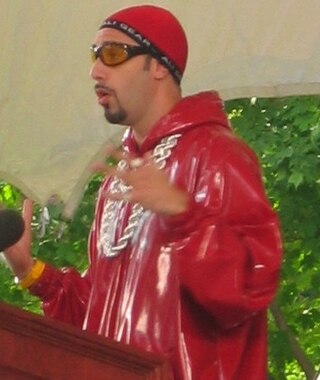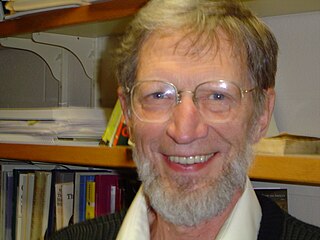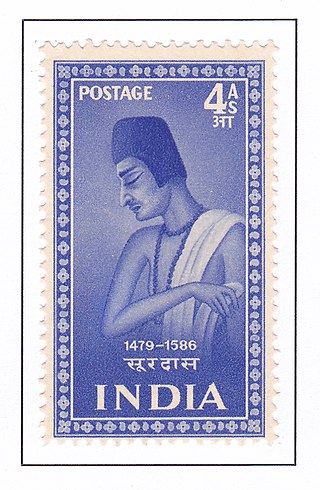Related Research Articles

Alistair Leslie Graham, better known as Ali G, is a satirical fictional character created and performed by English comedian Sacha Baron Cohen. A faux-streetwise poseur from Staines, England, Ali G speaks in rude boy-style Multicultural London English and brags about coming up "in da heart of da Staines ghetto" and leading a local street gang, "Da West Staines Massiv." He conducts interviews with unsuspecting subjects who do not realise they have been set up.

Alvin Carl Plantinga is an American analytic philosopher who works primarily in the fields of philosophy of religion, epistemology, and logic.

Charles William Eliot was an American academic who was president of Harvard University from 1869 to 1909, the longest term of any Harvard president. A member of the prominent Eliot family of Boston, he transformed Harvard from a respected provincial college into America's preeminent research university. Theodore Roosevelt called him "the only man in the world I envy."

Dudley Robert Herschbach is an American chemist at Harvard University. He won the 1986 Nobel Prize in Chemistry jointly with Yuan T. Lee and John C. Polanyi "for their contributions concerning the dynamics of chemical elementary processes". Herschbach and Lee specifically worked with molecular beams, performing crossed molecular beam experiments that enabled a detailed molecular-level understanding of many elementary reaction processes. Herschbach is a member of the Board of Sponsors of the Bulletin of the Atomic Scientists.

George Santayana was a Spanish-American philosopher, essayist, poet, and novelist. Born in Spain, Santayana was raised and educated in the United States from the age of eight and identified as an American, yet always retained a valid Spanish passport. At the age of 48, he left his academic position at Harvard University and permanently returned to Europe; his last will was to be buried in the Spanish Pantheon in the Campo di Verano, Rome.

Ali ibn Abi Talib was the cousin and son-in-law of the Islamic prophet Muhammad, and was the fourth Rashidun caliph who ruled from 656 CE to 661, as well as the first Shia imam. Born to Abu Talib ibn Abd al-Muttalib and Fatima bint Asad, young Ali was raised by his elder cousin Muhammad and was among the first to accept his teachings.

Surdas was a 16th-century blind Hindu devotional poet and singer, who was known for his works written in praise of Krishna. His compositions captured his devotion towards Krishna. Most of his poems were written in the Braj language, while some were also written in other dialects of medieval Hindi, like Awadhi.
Gerald James Holton is a German-born American physicist, historian of science, and educator, whose professional interests also include philosophy of science and the fostering of careers of young men and women. He is Mallinckrodt Professor of Physics and professor of the history of science, emeritus, at Harvard University. His contributions range from physical science and its history to their professional and public understanding, from studies on gender problems and ethics in science careers to those on the role of immigrants. These have been acknowledged by an unusually wide spectrum of appointments and honors, from physics to initiatives in education and other national, societal issues, to contributions for which he was selected, as the first scientist, to give the tenth annual Jefferson Lecture that the National Endowment for the Humanities describes as, “the highest honor the federal government confers for distinguished achievement in the humanities”.
James Lee Peters was an American ornithologist.

Francis Otto Matthiessen was an educator, scholar and literary critic influential in the fields of American literature and American studies. His best known work, American Renaissance: Art and Expression in the Age of Emerson and Whitman, celebrated the achievements of several 19th-century American authors and had a profound impact on a generation of scholars. It also established American Renaissance as the common term to refer to American literature of the mid-nineteenth century. Matthiessen was known for his support of liberal causes and progressive politics. His contributions to the Harvard University community have been memorialized in several ways, including an endowed visiting professorship.

Abu al-Hasan 'Ali ibn Abi al-Said 'Abd al-Rahman ibn Ahmad ibn Yunus ibn Abd al-'Ala al-Sadafi al-Misri was an important Arab Egyptian astronomer and mathematician, whose works are noted for being ahead of their time, having been based on meticulous calculations and attention to detail. He is one of the famous Muslim astronomers who appeared after Al-Battani and Abu al-Wafa' al-Buzjani, and he was perhaps the greatest astronomer of his time. Because of his brilliance, the Fatimids gave him generous gifts and established an observatory for him on Mount Mokattam near Fustat. Al-Aziz Billah ordered him to make astronomical tables, which he completed during the reign of Al-Hakim bi-Amr Allah, son of Al-Aziz, and called it al-Zij al-Kabir al-Hakimi. The crater Ibn Yunus on the Moon is named after him.

Frank Lewis Marsh was an American Seventh-Day Adventist biologist, educator and young Earth creationist. In 1963 he was one of the ten founding members of the Creation Research Society.
Ernan McMullin was an Irish philosopher who last served as the O’Hara Professor of Philosophy Emeritus at the University of Notre Dame. He was an internationally respected philosopher of science who has written and lectured extensively on subjects ranging from the relationship between cosmology and theology, to the role of values in understanding science, to the impact of Darwinism on Western religious thought. He is the only person to ever hold the presidency of four of the major US philosophical associations. He was an expert on the life of Galileo.
The School of Biological Sciences is a School within the Faculty Biology, Medicine and Health at The University of Manchester. Biology at University of Manchester and its precursor institutions has gone through a number of reorganizations, the latest of which was the change from a Faculty of Life Sciences to the current School.
Peter Eric Enns is an American Biblical scholar and theologian. He has written widely on hermeneutics, Christianity and science, historicity of the Bible, and Old Testament interpretation. Outside of his academic work Enns is a contributor to HuffPost and Patheos. He has also worked with Francis Collins' The BioLogos Foundation. His book Inspiration and Incarnation challenged conservative/mainstream Evangelical methods of biblical interpretation. His book The Evolution of Adam questions the belief that Adam was a historical figure. He also wrote The Bible Tells Me So: Why Defending Scripture Has Made Us Unable to Read It and The Sin of Certainty: Why God Desires Our Trust More than Our 'Correct' Beliefs.

Harvard University is a private Ivy League research university in Cambridge, Massachusetts. Founded October 28, 1636, and named for its first benefactor, the Puritan clergyman John Harvard, it is the oldest institution of higher learning in the United States. Its influence, wealth, and rankings have made it one of the most prestigious universities in the world.
George V. Lauder is a Professor of Organismal and Evolutionary Biology at Harvard University and Fellow of the American Association for the Advancement of Science.

Sathyabhama Das Biju is an Indian amphibian biologist, wildlife conservationist and heads the Systematics Lab at the University of Delhi, Department of Environmental Studies and is currently in Harvard University as a Radcliffe Fellow at the Radcliffe Institue for Advanced Study. He is dubbed as the "Frogman of India" by media for his passion for frogs and for bringing fresh fascination for Indian amphibians.
Walter Julius Veith is a South African zoologist and a Seventh-day Adventist author and speaker known for his work in nutrition, creationism and Biblical exegesis.
Nicholas Wright Gillham was an American geneticist who served as the James B. Duke Professor of Biology at Duke University. In addition to his scientific research, he is known for his 2001 biography of Francis Galton, A Life of Sir Francis Galton: From African Exploration to the Birth of Eugenics.
References
- ↑ Ali G and a zoologist - part 1, 12 December 2007, retrieved 2023-06-21